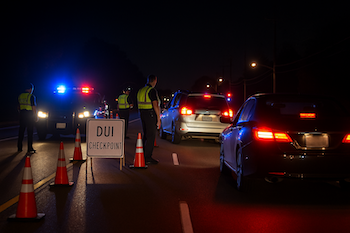 DUI checkpoints, also known as sobriety checkpoints, are a common law enforcement tool in Illinois to deter impaired driving, but they must adhere to strict constitutional guidelines to be legal. As a Will County DUI lawyer with over 20 years of experience, including my time as a former Will County prosecutor, I've challenged numerous checkpoint arrests, often leading to evidence suppression or case dismissals. At the Law Office of Jack L. Zaremba, we specialize in defending against DUI charges from checkpoints in Joliet and surrounding areas, where these operations frequently occur on holidays or weekends. In this blog post, we'll cover how DUI checkpoints work in Illinois, your rights during one, potential penalties, and effective defenses for 2025.
DUI checkpoints, also known as sobriety checkpoints, are a common law enforcement tool in Illinois to deter impaired driving, but they must adhere to strict constitutional guidelines to be legal. As a Will County DUI lawyer with over 20 years of experience, including my time as a former Will County prosecutor, I've challenged numerous checkpoint arrests, often leading to evidence suppression or case dismissals. At the Law Office of Jack L. Zaremba, we specialize in defending against DUI charges from checkpoints in Joliet and surrounding areas, where these operations frequently occur on holidays or weekends. In this blog post, we'll cover how DUI checkpoints work in Illinois, your rights during one, potential penalties, and effective defenses for 2025.
How DUI Checkpoints Work in Illinois
Under Illinois law (625 ILCS 5/11-501.2), checkpoints must be pre-approved, publicized in advance, and conducted neutrally (e.g., stopping every third vehicle) to comply with the Fourth Amendment per Michigan Dept. of State Police v. Sitz (496 U.S. 444, 1990). In Will County, agencies like the Illinois State Police or Joliet PD set up on high-traffic roads like I-55 or Route 30, checking for impairment via observations, field sobriety tests, or breathalyzers. For more on checkpoint guidelines, refer to the Illinois Department of Transportation DUI Resources .
In 2025, checkpoints incorporate advanced tech like license plate readers, but must avoid racial profiling or prolonged detentions without reasonable suspicion.
Your Rights at a DUI Checkpoint
You have rights: provide license/registration/insurance upon request, but you can refuse field sobriety tests or preliminary breath tests without penalty (though refusal may lead to arrest based on other signs). If asked to exit, comply but assert your right to remain silent and request an attorney. Checkpoints can't be used for general crime control per City of Indianapolis v. Edmond (531 U.S. 32, 2000).
In Will County, improper checkpoints (e.g., no advance notice) can invalidate arrests, suppressing evidence.
Penalties and Consequences of DUI at Checkpoints
- First Offense: Class A misdemeanor, up to 1 year jail, $2,500 fines, 6-month suspension.
- Aggravated: Felony if priors or injury, 1-7 years prison, revocation.
- License Impacts: Summary suspension for failures/refusals, BAIID for reinstatement.
Consequences include insurance hikes and records affecting jobs. Checkpoint DUIs often involve added scrutiny due to public safety focus.
Defense Strategies for Checkpoint DUIs
Defenses target legality:
- Challenge Checkpoint Validity: Argue lack of neutrality or publicity for suppression.
- Evidence Disputes: Contest test accuracy or probable cause.
- Rights Violations: Suppress if detained without suspicion.
- Plea Negotiations: Reduce to reckless driving.
In Joliet, we've dismissed checkpoint DUIs by proving procedural flaws.
Why Hire a Will County DUI Lawyer for Checkpoint Cases?
Checkpoints involve constitutional nuances; my experience counters them effectively.
If you've been arrested at a DUI checkpoint in Will County, contact the Law Office of Jack L. Zaremba for a free consultation. Visit our contact page or call our Joliet office to defend your rights in 2025. Stay safe and informed.

